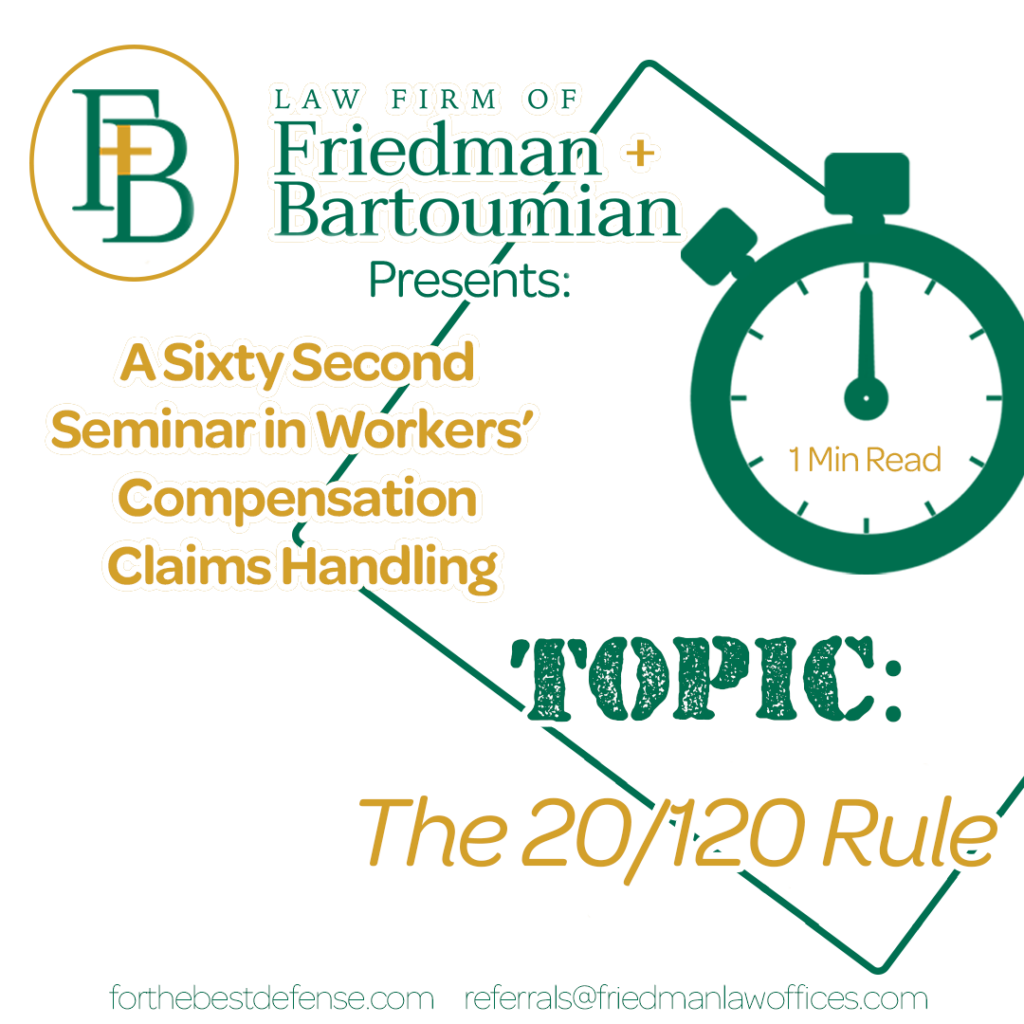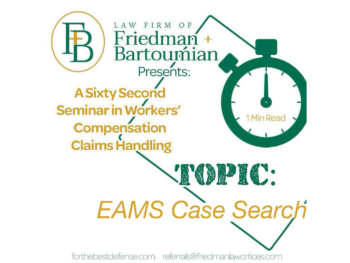
Most claims professionals have never heard of the “20/120 rule” in workers’ compensation. It can be found in the Regulations under 8 CCR 10636(b), governing the request, production, and service of benefit printouts.
For the most part, claims administrators consider the production and service of a benefit printout as a clerical function. Unfortunately, clerical staffers usually receive very little, if any, legal training on how to perform this assignment. Claims assistants are often instructed to simply mail, e-mail, or fax out a printout. In today’s blog we will explain why legal training should be provided to claims assistants prior to performing this task.
- The 20/120 Rule: Some applicant attorneys request a monthly printout on a routine basis. Pursuant to the regulations when a printout request is received the administrator must comply within 20 days. However, absent a material change in benefits, a request cannot be enforced more than once every 120 days. This is our 20/120 Rule. Absolutely no legal authority exists requiring a claims administrator to produce a monthly report.
- Expense Printout: Never include “expenses” when serving a printout. Only an itemization of indemnity and medical benefits are to be provided. It can be highly problematic to include disclose expenses to an applicant’s attorney. For example, an expense printout will identify all payments issued to an investigator along with the dates of service. It can be exceptionally awkward having to explain to an employer how opposing counsel learned of the involvement of an investigator and the specific dates when the surveillance occurred.
- Third-Party Attorney Request: Sometimes a benefit printout is requested by a third-party law office, totally uninvolved in the workers’ compensation claim. The request may come from a firm representing the injured worker in a tort action or from a law office defending a civil case. A work comp claims administrator is under no legal obligation to comply with a third-party request but may voluntarily do so, if so desired. However, an astute claims assistant should recognize the request as coming from a third-party. This recognition may provide vital information to pursue a third-party subrogation case or to seek apportionment attributed to a non-industrial injury. It would therefore be a good business practice for claims assistants to forward all third-party benefit printout requests to a claim’s supervisor for review.
- WCAB Hearings: All too often claims administrators are told that a benefit printout is required at all WCAB hearings, and that the failure to provide one could cause the employer to be held in contempt of court. Rule 10759(b) states: “A defendant that has paid benefits shall have a current computer printout of benefits paid available for inspection at every mandatory settlement conference (emphasis added).” Notice how the rule requires the production of a printout only for an MSC. Consequently, a claims administrator is not in violation of the regulation should it fail to produce a printout at any WCAB hearing other than an MSC. Nonetheless, we recommend that defense counsel for the employer always have a BPO in hand at every board appearance, as the information contained therein is invaluable, especially if settlement papers are drafted at the Board.
For best practices we urge claims administrators to share the information provided in today’s blog with the entire claims staff, especially clerical personnel. Our goal at F+B is to provide the best education for our friends and clients, including claims assistants.


 Double Vouchers: A 60-Second Seminar in Workers’ Compensation Claims Handling
Double Vouchers: A 60-Second Seminar in Workers’ Compensation Claims Handling
Leave a Reply